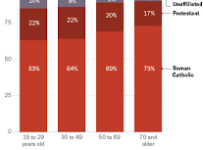Brazil, renowned for its vibrant culture, breathtaking landscapes, and dynamic economy, has emerged as an increasingly popular destination for international students seeking high-quality education and immersive cultural experiences. However, for many prospective students, obtaining a student visa is a crucial step in realizing their academic aspirations in Brazil. In this article, we explore the intricacies of the student visa application process and shed light on the success rate of obtaining student visas in Brazil.
The Student Visa Application Process:

Before delving into the success rate, it’s essential to understand the student visa application process in Brazil. International students wishing to pursue higher education in Brazil typically need to apply for a student visa, known as the “Visto Temporário para Estudante” (Temporary Visa for Students), at the Brazilian consulate or embassy in their home country.
The application process usually involves submitting various documents, including a letter of acceptance from a recognized Brazilian educational institution, proof of financial means to support oneself during the stay, a valid passport, medical insurance coverage, and a clean criminal record certificate. Additionally, applicants may need to undergo an interview at the consulate or embassy to assess their intentions and eligibility for the visa.
Success Rate of Student Visas:

Determining the exact success rate of student visa applications in Brazil can be challenging due to the lack of comprehensive data publicly available. However, anecdotal evidence and reports from educational institutions and immigration authorities offer insights into the general trends and factors influencing visa approval rates.
Success rates for student visas in Brazil can vary depending on a multitude of factors, including the applicant’s country of origin, the reputation of the educational institution, the completeness and accuracy of the application, and the prevailing immigration policies and regulations. Generally, applicants from countries with strong diplomatic ties to Brazil and a history of academic exchange programs may have higher success rates compared to those from countries with less-established connections.
Moreover, the reputation and accreditation status of the chosen educational institution can significantly impact visa approval chances. Brazilian authorities may scrutinize applications more closely if the institution is relatively unknown or lacks proper accreditation, as they seek to ensure the quality and legitimacy of educational programs offered to international students.
Additionally, the financial stability and ability of the applicant to demonstrate sufficient funds to cover tuition fees, living expenses, and other associated costs are crucial factors considered during the visa evaluation process. Adequate documentation proving financial solvency is essential to alleviate concerns regarding the applicant’s ability to support themselves while studying in Brazil.
Challenges and Considerations:
Despite the overall positive outlook for student visa applicants, certain challenges and considerations merit attention. Delays in visa processing, bureaucratic hurdles, and changes in immigration policies can impact the timely issuance of visas, leading to uncertainty and frustration for prospective students.
Furthermore, language proficiency in Portuguese may pose a challenge for some applicants, particularly those enrolling in programs taught in Portuguese. While proficiency in English may suffice for certain courses, a basic understanding of Portuguese and a willingness to learn the language can enhance the student’s academic experience and integration into Brazilian society.
Moreover, cultural adaptation and adjustment to the Brazilian way of life may present challenges for international students, particularly those coming from vastly different cultural backgrounds. Building a support network, engaging in cultural exchange activities, and seeking assistance from student services can facilitate the transition and enhance the overall student experience in Brazil.
Conclusion:
In conclusion, obtaining a student visa to study in Brazil is an attainable goal for many international students, albeit with varying degrees of complexity and uncertainty. While the success rate of student visa applications in Brazil may fluctuate depending on numerous factors, including diplomatic relations, institutional reputation, and individual circumstances, diligent preparation, adherence to immigration requirements, and perseverance are key to maximizing the chances of a successful outcome.
As Brazil continues to attract a diverse array of international students seeking educational opportunities and cultural enrichment, efforts to streamline the visa application process, enhance transparency, and foster international cooperation are essential to promote educational exchange and mutual understanding on a global scale. By navigating the path to educational opportunity with determination and resilience, prospective students can embark on a transformative journey of learning and discovery in the captivating landscape of Brazil.


